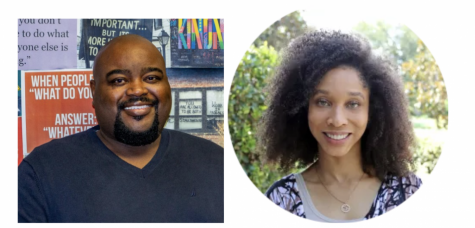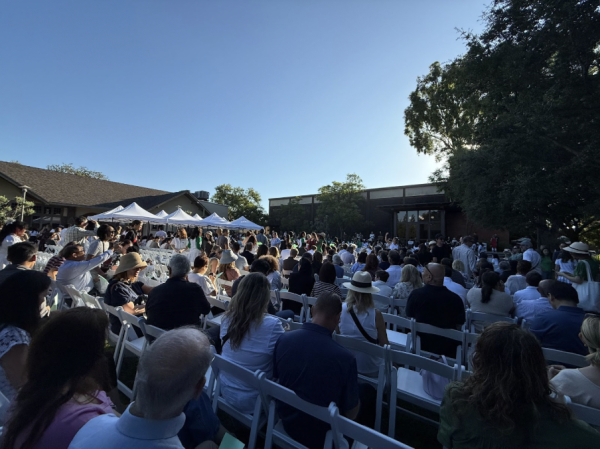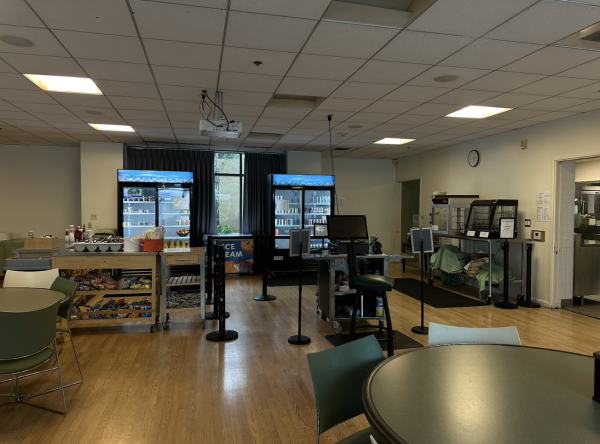New Hires Ian Tatum and Tamara Jaffe Further Westridge’s Commitment to DEI

Advocating for and creating change—whether for society, yourself, or a handful of individuals—is in no way an easy task. How does anyone committed to diversity, equity, and inclusion (DEI) find the motivation to overcome obstacles to change?
Spyglass spoke to Westridge’s new hires Ian Tatum, Director of Equity, and Tamara Shahar Jaffe, Dean of Lower and Middle School Student Voices. Their collective stories and insights demonstrate their deep commitment to and belief in power and possibility of change.
Ian Tatum felt the need for change in racial and social issues ever since he was five years old. He has engaged in discussions around equity throughout his education and his career. Last year, he collaborated with Dr. Zanita Kelly to host a virtual assembly on microaggressions. “It’s head, heart, and habit,” he said when asked about his process for cultivating change. “Head is for learning and understanding. How we feel and use what accesses we have, that’s heart. Habit is the question, ‘What’s next?’ Our work—what does it mean? How do we change things on our journey?”
The journey towards change also feels personal for Tamara Shahar Jaffe, a Westridge alumna from the Class of 2008. Ms. Jaffe, also known as Miss Tam, spoke about the significant changes Westridge underwent from her time as a student to when she began subbing in the dance program.“The [Westridge] society that we live in and our education system really hasn’t actually been around that long. When I was [here], we did not have a lot of students who were out or comfortable being out. There were not a lot of girlfriends and holding hands. We were not doing that.”
Both Mr. Tatum and Miss Tam spoke about the role of mentorship and the powerful impact it had on them personally. For Mrs. Jaffe, mentorship started with her family. Though an only child, she has mentored four younger cousins all their lives. She hopes to be a mentor to Westridge students and invite them into difficult conversations. When she overheard dance students discussing social issues of nonconformity and equity, she tried to begin conversations but was saddened when she found it difficult to gain her students’ trust.
“It makes me so sad when I walk up to kids and I’m like, ‘Hey!’ And immediately, they’re like, ‘Oh, I’m not doing anything wrong.’ That is heartbreaking to me.” Mrs. Jaffe hopes her role as Dean of Lower and Middle School Student Voices will help cultivate her mentorship skills and create a culture of trust with students.
Mr. Tatum also understands the importance of partnering with students and faculty and building relationships. When he was a student, he was very inquisitive, sometimes to the annoyance of his teachers. But there was one teacher he greatly admired, Willie T. Summerville, who united music and songs with restorative and open conversations on integrity, gratitude, and taking risks, providing lessons regarding equity and social justice. Change, he explained, starts with listening without judgment. “People don’t automatically get to that position,” he said regarding people who face discrimination as well as people who commit it.
“People have the capacity to change, [but it is] based on one notion: if they are willing to grow,” said Mr. Tatum. “If they are willing to learn. If they are willing to do the work. That is about personal reflection. Who do you want to be? If your behavior and desire don’t align, that’s you. And you may want to change. But I can’t tell you that.”
Overcoming the obstacles to change begins at a personal level. Mr. Tatum has a particular activity he finds useful for helping people communicate their feelings and ambitions to others: writing. “Writing is a personal process, talking of experience without judgment,” he said. “Having a place to put it without judgment. Then, after you put it on paper, you can read through it. You get to put it out of your body, and then it can be validating.”
Miss Tam processes her emotions and feelings through her love of dance. “I’m really bad at recognizing and dealing with my own emotions; I have a very delayed response,” she said. “For dance, it’s probably the only time when my mind is not going at a million miles per second, and my body is just moving to the music, and I’m not thinking about it. And that’s kind of the time when I feel most free, and I feel like I can actually express what I’m feeling in the moment. And that’s not something I usually get to do because I have to process everything before I say it.”
As committed DEI practitioners, Mr. Tatum and Miss Tam practice what they preach when they want to see change at an institutional level. Both spoke about their own personal journeys and what it means to be aware of their own feelings and motivations and how to engage with them. Their work can be characterized as a kind of team-building process, connecting with Westridge administration as well as the student community.
Correction (8:00 a.m. Nov. 30):
A previous version of this article incorrectly stated that Miss Tam was one of eleven siblings, and that she had a stepmother from El Salvador. Miss Tam is an only child and had no stepmother. Her uncle married an El Salvadoran woman, and Miss Tam mentored their four children.




























![Dr. Zanita Kelly, Director of Lower and Middle School, pictured above, and the rest of Westridge Administration were instrumental to providing Westridge faculty and staff the support they needed after the Eaton fire. "[Teachers] are part of the community," said Dr. Kelly. "Just like our families and students."](https://westridgespyglass.org/wp-content/uploads/2025/03/dr.-kellyyy-1-e1748143600809.png)


























